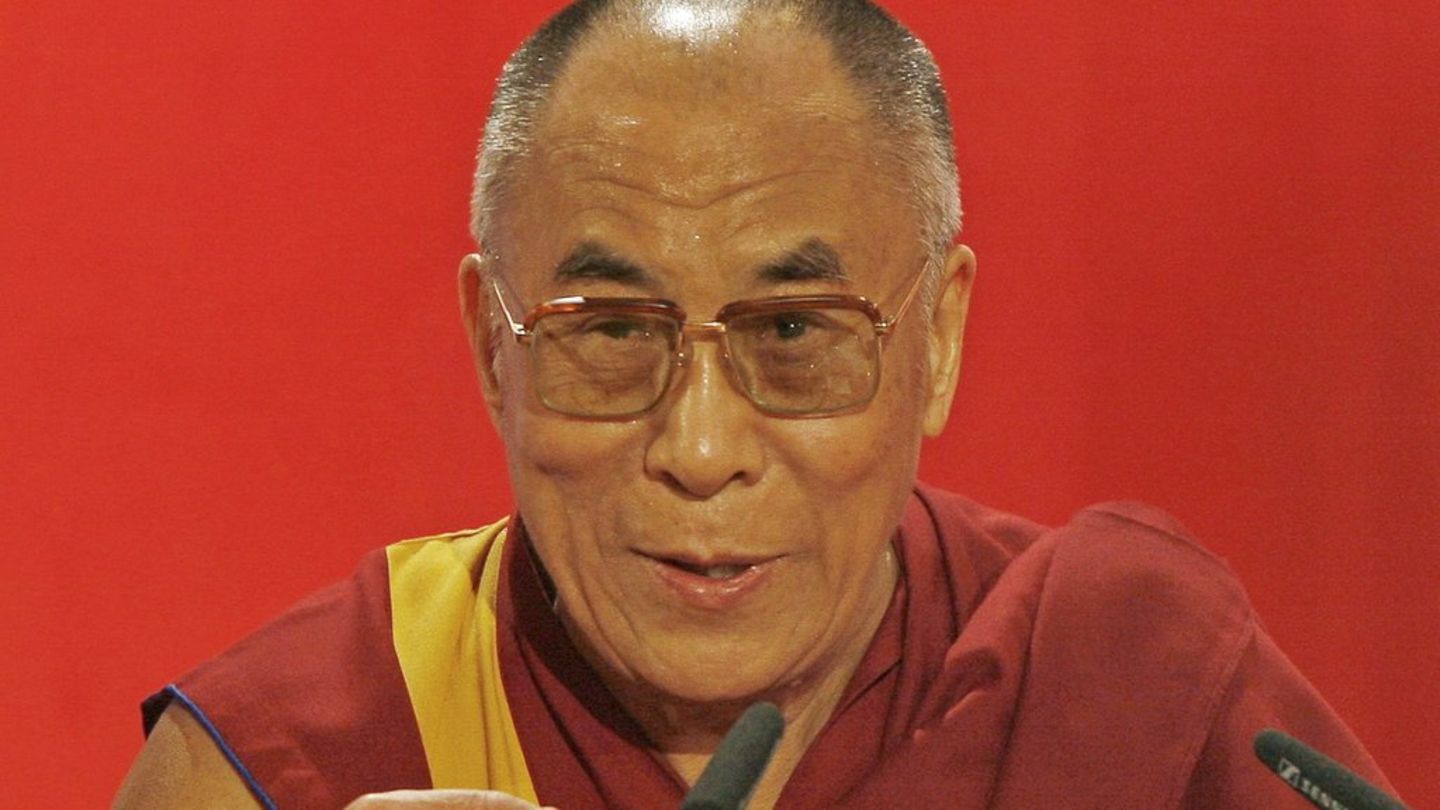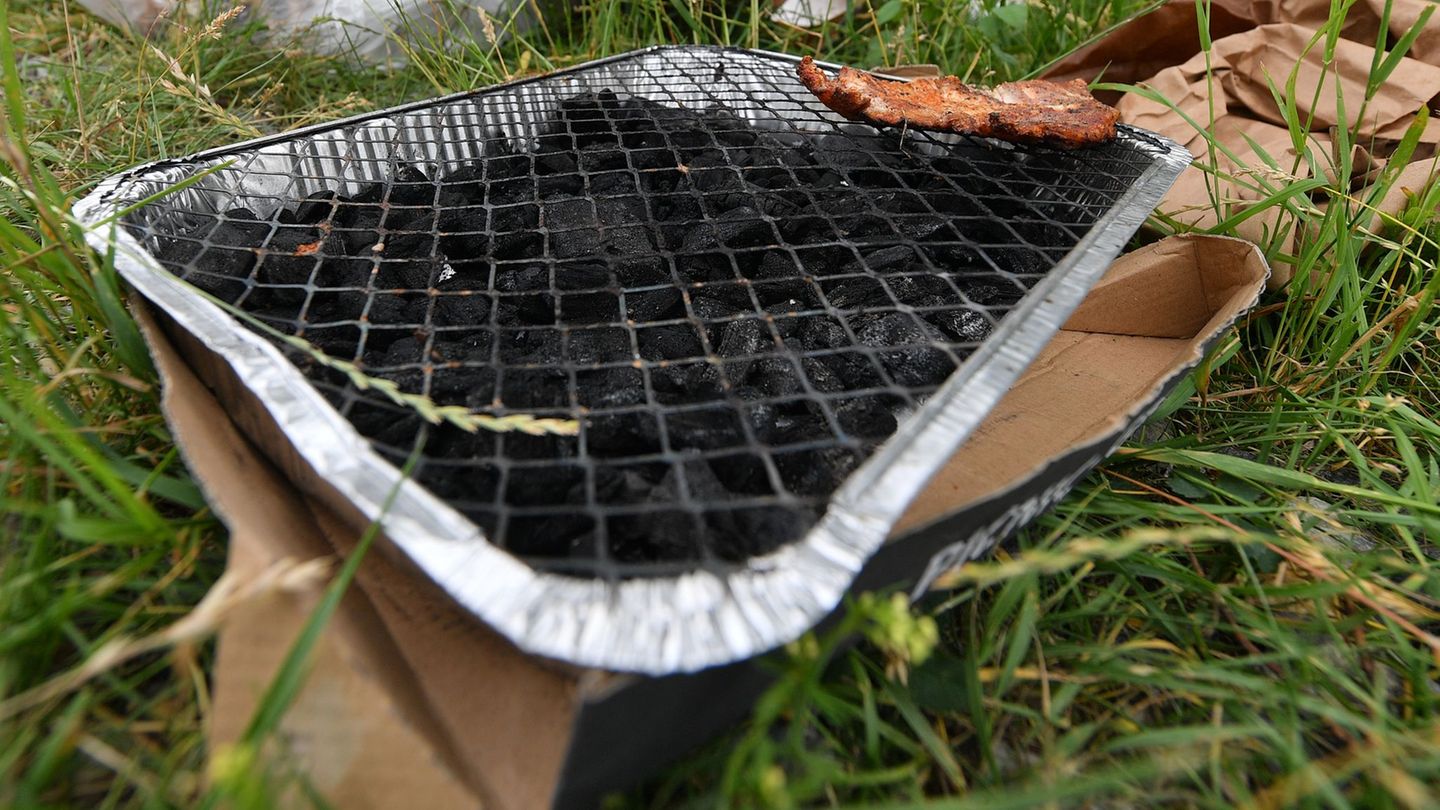Nikeata Thompson
“I endured a lot”
Copy the current link
Nikeata Thompson fights for diversity and equality: “Differences enrich us when we accept and respect them.”
Nikeata Thompson (44) became known to a wide audience as a juror, choreographer and catwalk coach on “Germany’s Next Top Model”. Today she works successfully as an actress, author and entertainer, among other things. “Heidi Klum gave me visibility, which opened doors for me in my future career,” says the 44-year-old gratefully.
A visibility that Thompson also uses in her fight against racism and for more diversity. She just visited an inclusive climbing group run by the German Alpine Club, which is supported by Aktion Mensch. “When we strive to develop understanding for one another and show empathy, we create a culture in which diversity is not only tolerated, but celebrated,” says Thompson.
You are a real all-round talent: choreographer, author and actress – in which area do you feel most comfortable?
Nikeata Thompson: All of these areas are part of an ongoing journey for me, and at each stage of my life the focus has felt just right. My work as a choreographer and the development of my dancer agency NT Agency have accompanied and inspired me for many years – they still do to this day. With my autobiography “Black on White – Dare to dream and achieve the impossible” I made myself and the community heard and contributed to social awareness. And I also find a special passion in acting. Immersing yourself in different characters is not only varied, but also a great way to develop myself. Each professional field reflects a specific phase of my personal development and shows how complex we are as people. This diversity in my work motivates me to continue to grow and keep exploring new paths!
Many people know you primarily from “Germany’s Next Top Model”. Does it sometimes annoy you when you are primarily associated with this format?
Thompson: Heidi saw potential in me many years ago and gave me the opportunity to show my work as a coach in front of the camera. This gave me visibility, which opened doors for me in my future career. For that I am and will always be very grateful to her. I think people sometimes don’t understand what a power woman Heidi actually is. She has managed to build a successful career in both Germany and the USA – over the years. So if you ask me whether I’m annoyed about being associated with “GNTM”, my answer is a clear no.
Her acting career took off this year with the series productions “Where’s Wanda?” and “Pauline” really took off. For a long time, people of color were not visible in the German film landscape. Are you noticing a change in thinking in the industry?
Thompson: For a long time there were no serious role offers for me as a POC woman. Today, with projects like “Where’s Wanda?” and the role in “Pauline”, I feel grateful and to some extent confirmed. It’s proof that change is possible if you don’t give up. I am very happy that there are more and more POC actresses and actors in the German TV and film landscape. If you ask me whether that is enough, my answer is no! I think the media landscape should reflect our society so that everyone can feel addressed and future generations can see themselves in it and see that it is possible to achieve anything. For far too long, POC women in particular have only been offered very specific roles. Sometimes even with an accent, it was really depressing. The film industry has now opened up somewhat and there are more and more serious role offers for POC actresses and actors. A positive change is noticeable, even if we are still at the beginning and there is a lot of potential for improvement.
In your autobiography you also deal with topics such as the visibility of people of color and diversity. What has to happen for diversity to become a matter of course in society?
Thompson: We live in a democracy in which every person – regardless of skin color, religion, sexual orientation, with or without disabilities – deserves a place. A place that means visibility in society. It’s about accepting each other, respecting each other and, ideally, being open to differences that can definitely enrich us. When we strive to understand one another and show empathy, we create a culture where diversity is not only tolerated but celebrated. It’s actually quite simple, but apparently so difficult: live and let live! By supporting and inspiring each other, we can build an inclusive society where everyone can find their place and be at peace with themselves.
You have just visited an inclusive climbing group run by the German Alpine Club in Berlin. What was your impression of the project supported by Aktion Mensch and what did you take away from it?
Thompson: It was impressive to see people with different backgrounds and abilities come together to climb together and support each other. The project shows how important inclusion is in sport. Not only does it create a space where everyone has the opportunity to expand their boundaries, but it also promotes a sense of community and togetherness. The enthusiasm and solidarity among the participants was noticeable and showed me how much potential there is in such projects. What I take away is the realization that sport can build a bridge – between people who might otherwise never come together. This experience strengthens my commitment to diversity and inclusion, and I hope that such projects can continue to grow and reach more and more people.
Do you have any contact with the topic of inclusion and disability in your environment?
Thompson: I have a cousin who has Down syndrome. His joy for life and his unwavering positive attitude showed me how enriching such a connection is. It sensitized me and opened my eyes to the challenges that people with disabilities often face. Although I don’t have many direct contact with the topic in everyday life, I enjoy working with people who have special needs. It’s inspiring to see how much talent and potential there is in each individual, regardless of their abilities. I firmly believe that we can all learn from each other. If we show empathy and understanding, we can create a society in which everyone has their place and can thrive.
What advice can you give to people who are struggling with discrimination, exclusion or disadvantage?
Thompson: I’ve had to deal with all of these terms my whole life, ever since I was a very young child. I “endured” a lot and pushed a lot away. If I had to give my younger self some advice, I would probably say: Find your voice! It’s not healthy to keep everything inside and I firmly believe that communication is a key factor. This doesn’t necessarily always mean going into direct confrontation, but perhaps also sharing your experiences with your loved ones and allies. But if you feel like it, speak up and stand up for yourself. This is often good for the soul. I try not to accept the hatred that other people give me because these people don’t know me at all. This doesn’t always work, but it works more and more often.
Do you have any new plans and projects for the future? Or a dream that you would like to realize?
Thompson: Going forward, I would like to find more balance in my life. The last few years have been intense and I love what I do, but I’ve realized how important it is to also find time for myself. I would like to approach my life with more mindfulness and balance in order to remain creative and energetic. I believe that true fulfillment comes when work and rest are in harmony. At the same time, I want to inspire and motivate the next generation of artists, especially people of color, to live their dreams – even if the path is not always easy. The dream of building a bridge between cultures and initiating change drives me and remains my long-term goal.
SpotOnNews
Source: Stern
I am an author and journalist who has worked in the entertainment industry for over a decade. I currently work as a news editor at a major news website, and my focus is on covering the latest trends in entertainment. I also write occasional pieces for other outlets, and have authored two books about the entertainment industry.




